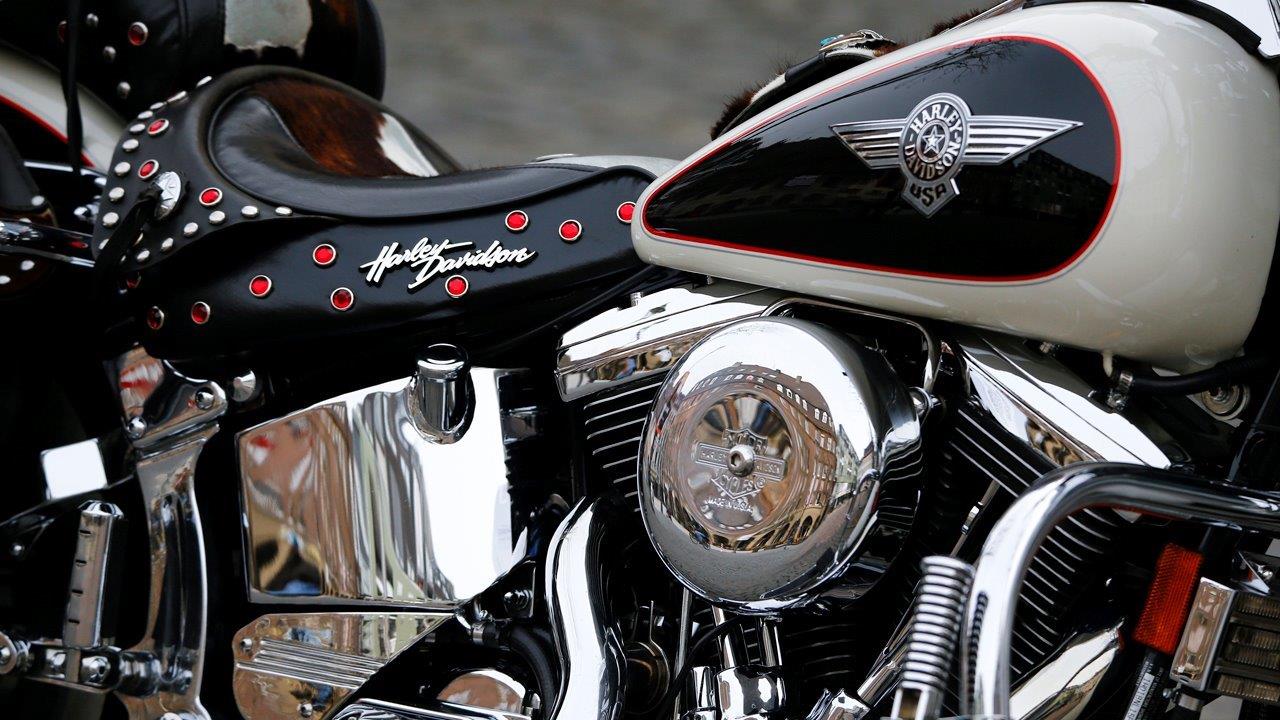Harley-Davidson CEO on Trump Meeting, Corporate Tax Reform
Harley-Davidson (NYSE:HOG) is closely watching developments in Washington, D.C., as President Donald Trump and Republicans in Congress seek major reforms to corporate taxes.
Executives from the motorcycle maker traveled to the White House last week to meet with President Trump, Vice President Mike Pence and administration officials. Harley-Davidson CEO Matt Levatich said the president wanted to get the company’s input on the issues, from tax reform to trade.
“It was a great meeting, mostly because of the way the president and the administration really engaged with us on issues of importance to great American manufacturers like Harley,†Levatich said Wednesday during interview on the FOX Business Network’s “Mornings with Maria.â€
“They really listened. They want to hear what we have to say because, as you can imagine, there are a lot of complicated things to figure out, whether it’s tax reform or trade issues.â€
Levatich said a tax cut—possibly to 20%—would allow Harley-Davidson to reinvest in its business. The Milwaukee-based company pays an effective tax rate of around 35%, matching the current federal rate.
The company also stands to benefit from the potential border adjustment to the tax code, which is being debated on Capitol Hill and would exempt U.S. corporate export revenues from tax, but at the same time prevent companies from deducting the cost of imported goods and services. Some retailers, car dealers and oil refiners – who depend heavily on imports—argue this would force them to hike prices.
On the other hand, domestic manufacturers—especially companies that export goods from the U.S.—stand to benefit from such a tax. Harley-Davidson has faced stiff competition in the U.S. from Japanese competitors that offer lower-priced models.
“Harley has been heavily invested in American manufacturing since day one, and we’re a great representation of American manufacturing,†Levatich said.
Harley-Davidson is also struggling to jumpstart demand at home, where the company’s core customers are getting older. During an earnings call last week, Levatich said Harley-Davidson will invest in a long-term strategy to “build the next generation of Harley-Davidson.†The company has already increased sales to young adults, women, African-Americans and Hispanics.
Over the next five years, Harley-Davidson plans to launch 50 new bikes that make a significant impact on the market.
“Fifty is just a number,†but “what matters is what they say†to existing riders, new riders and potential customers who are interested in switching to Harley-Davidson from a competing brand, Levatich said.




















